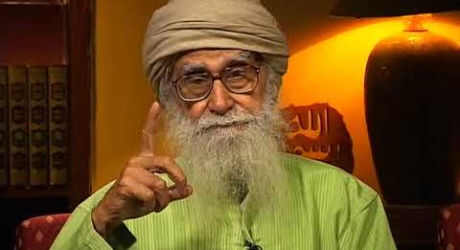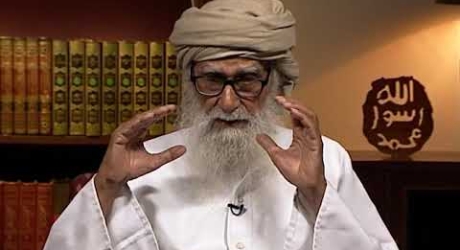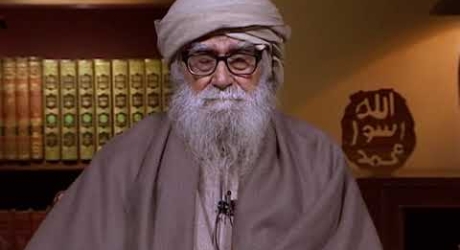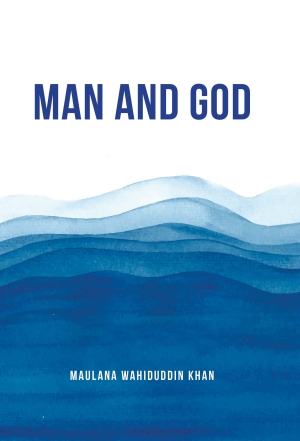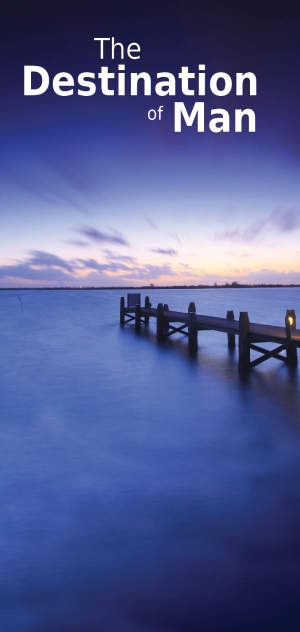A western philosopher has written that it appears that man is a stranger in this vast universe. It seems that neither has man been made for this world nor has this world been made for man. Both seem mismatched. There is contradiction in man’s world.
Man is born with unlimited potential, yet in the present world, he finds only very limited use for it. According to his nature, man wants to live eternally, but very soon, without his leave, death arrives and puts an end to his life. He harbours an ocean of desires in his heart, but these desires are never fulfilled. He houses a life of dreams in his mind, but these dreams are never realized. In this case, there is no difference between a poor man and a rich man. Why are man and the present world so mismatched? We can find our answer if we understand God’s Creation Plan.
The reality is that God—the Creator of man, has created man according to His Plan. To become acquainted with this Plan it is necessary for a man to have a thorough understanding of himself—just as the workings of a machine can only be understood when we study the drawings of the engineer who made it. Besides the mind of the engineer, there is no other thing that can clarify what the machine is meant for. The case of man is the same.
The existence of man is such a unique phenomenon that no other such example can be found throughout the vastness of the cosmos. Man is rightly called the ‘best of all creations,’ which means the best and most meaningful ‘being’ among all the things created. Such a ‘meaningful being’ cannot have been created without a purpose. The Creator of man has created him according to a special Plan. His intention is that man must spend a period of trial in this present, imperfect world, and subsequent to this, according to his deeds, he will earn the right to inhabit the perfect and eternal world, another name for which is Paradise.
The Creator of the world has created this world, as one half of a pair—the present world, in which we pass our lives after birth, is the first half; and the next eternal world where we live after death is the other half. The Creator of man has thus created him as an eternal creature and has divided his life into two stages—the pre-death period or the life in this world and the post-death period or the life after death. The limited period before death is meant to be a test for man, while the period after his death will be the period for his reward or punishment, based on his performance in the test in this life. This is the scheme of existence for this world as devised by its Creator. The real aim of creation is to select those who are fit to inhabit the world of Paradise.
Humanity is oblivious of his destiny, while time conveys him speedily towards harvesting his crop. He is busy procuring paltry worldly profits and considers himself worthily occupied, whereas he is just wasting his precious time. He has before him a superb opportunity to ensure a prosperous future for himself, but instead, he chooses to occupy himself with bagatelles. His Lord is calling him towards paradise, a place of endless honour and bliss, while he, in his ignorance, is immersed in ephemeral and delusive pleasures. He reckons that he is saving, but he is squandering. While constructing his worldly mansion, he is labouring under the illusion that he is building for his life”, while in fact, he is erecting walls of sand that will crumble away to nothing.
Man! You have been created for eternal Paradise. But ground realities show that trying to build a Paradise in this world is impossible.
Featured Articles
Featured Videos
FAQs
Man has been given an unlimited sense of enjoyment, but the objects from which he can derive endless pleasure have been kept in the second stage of his life—in the world that comes after death. In the first stage of his life—in the present world—man discovers his ability to pursue pleasure. In the life after death, if he had led a righteous life in this world, he could obtain all the objects of pleasure. That is to say, in the pre-death phase of life in this world, he will experience the desire for pleasure, and in the post-death stage, he can experience the full experience of pleasure in Paradise.
In line with His creation plan, the Creator of the world has given man an initial introduction in this present world to the pleasures one will enjoy in Paradise. In this way, He conveys to man that if he wants to experience pleasure for all eternity and in the most total sense, he should create a strong desire for this and perform such actions as will hold him deserving of Paradise.
What should one do to become deserving of Paradise in the Hereafter? To put it briefly, man should make himself a purified soul. He must purify himself of every negative emotion. He should save himself from becoming a victim of greed, selfishness, jealousy, dishonesty, falsehood, anger, revenge, hate, and other negative feelings. He should develop a lofty, entirely positive character that makes him worthy of living in the neighbourhood of God in Paradise. He must be transformed into an angelic person or a divine personality.
Man’s life is divided into the pre-death and post-death phases. A tiny portion of man’s life is kept for the first phase, while the rest—which carries on for all eternity—is in the post-death phase. If man’s story is seen only in the pre-death phase, it will appear as a meaningless tragedy. However, if a man’s story is seen in the light of the period after death, it will seem meaningful.
In line with this creation plan of God, man stands at a very critical juncture. He has to choose between two alternatives. One option is to use the available opportunities in the present world according to God’s creation plan and then become eligible to live amidst eternal joy in Paradise. The other option is to lead a life of heedlessness in this world and be eternally deprived of pleasure in the next phase of life.
Source: God’s Creation Plan
According to Islam, God created man as an eternal being, but divided his lifespan into two: the worldly life and the post-death life. While the pre-death period is temporary, the post-death one is eternal. To illustrate this, let us compare human life with an iceberg. The iceberg is a huge mass of ice floating in the ocean, but only about 10 per cent of it is above the surface of water, and the rest of it is under water.
God has created a world called Paradise — an ideal world, a perfect world. According to the Quran, it is a place where man will find fulfilment of all his desires:
Therein, you shall have all that your soul desires. (Quran 41:31)
[Paradise] is a place where people shall not fear, nor shall they grieve. (Quran 2:112)
Our life on earth is just a preparation for the eternal afterlife. In this world, there are different kinds of situations and challenges. Man is here to face those challenges and prepare himself to be a deserving candidate for Paradise. In this sense, our life on earth is a world of opportunities. Those who avail of these opportunities and prepare themselves accordingly, will be chosen and will be settled in Paradise after death.
In this life, there are all kinds of problematic and unwanted situations. But they have a purpose. They constitute a training ground that gives us a chance to cope with adversity, thus preparing us for eternal entry into Paradise. The Quran introduces Paradise thus:
God calls man to the home of peace. (Quran 10:25)
According to Islam, the present world is a place of work, while the world Hereafter is a place of reward. When one dies, life does not come to an end. One simply enters the second phase of life, that is, the world Hereafter. It is only in the present world that one can prove that one is deserving of Paradise in the world Hereafter. This opportunity ends at the time of death; after death, there is no opportunity to prepare oneself. Success and failure are both determined by one’s deeds in this world, in the pre-death period.
The basic theme of the Quran is to make the reader aware of the creation plan of God, according to which the present world has been created for a limited period of time. When this time is over and this world shall be brought to an end, the Day of Judgement shall take place. According to Islamic belief, it would be a Day of Justice where the deeds of every individual – good or bad – shall be laid bare and according to the deeds in the pre-death period, their final destination shall be decreed.
Entry into Paradise is not based on any kind of recommendation, and it is not anyone’s birthright. It depends totally on one’s deeds and how one uses one’s God-given freedom. The Quran is very clear on this point:
Man shall have only that for which he strives. (Quran 53:39)
If a person has true faith in God, then such a faith makes him modest. His speech and his conduct reflect his living faith in God. He thinks of God constantly watching over him. Some commentators on the Quran have defined a true believer as one who believes in the unseen in the manner in which he believes what is seen. A believer lives in this world in the same state that will overcome people when they will directly see God on the Day of Judgement. A believer surrenders to God in the present world itself.
Source: Seeker’s Guide
Job is your need and God is the goal of your life; so, both are important. If you do not study the books that give you job, who will fulfil your needs? The one who created you has Himself put in place the mechanism of your continuing to work for your livelihood without troubling anyone else. Dualism is a part of our life and we cannot dispense with it. Walt Whitman once said, ‘I am large enough to contain all these contradictions.’
Source: Seeker’s Guide
By birth, every person possesses two contradictory qualities. On the one hand, everyone desires to build a dream world, a world per their ideals, where they can spend their ‘tomorrow’—their future—in joy and peace. However, on the other hand, even if he acquires all sorts of objects of pleasure, every person cannot obtain this desired ideal world of his. Boredom, loss, illness, accidents, and old age are the story of many people in this world. Moreover, finally, every single person has to face the event of death.
Every person is born with the conception of an ideal world deeply embedded in his mind. However, almost everyone dies, taking with him many seemingly beautiful desires unfulfilled before he can obtain his desired world.
In this world, a particular principle prevails. It is the principle of pairs. Here, everything exists in the form of pairs. Everything becomes complete when two of a pair join together. For instance, there are negative and positive particles in the atom. In the world of plants, there are male plants and female plants. Likewise, there are males and females in the world of animals and humans.
This global natural principle can be called the ‘pair principle’. This principle tells us that everything makes itself complete by joining with its pair in this world.
In this universal principle lies the answer to the issue of the nature of this world referred to above. There must be a pair world that complements this present world in the universe. Along with this world, another world must exist; only by getting this other world will the present world complete its being.
In light of the above observation, the reality of the world of the Hereafter can be recognized as true. The world of the Hereafter is that pair-world joining which the present world completes its being. Without joining this pair world, our present world would be as incomplete as all other things in this universe would be without their pairs.
Our world is part of a pair. This world and the world Hereafter form a pair. After accepting this other world in the Hereafter, man’s existence becomes complete. The significance and meaningfulness of everything can now be seen. Everything now falls into place.
Source: God’s Creation Plan



